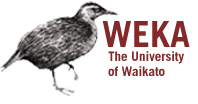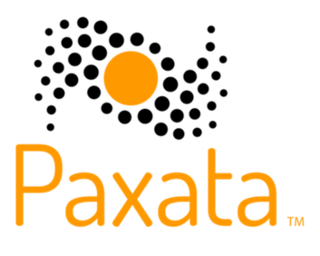
Machine learning (ML) is the study of computer algorithms that can improve automatically through experience and by the use of data. It is seen as a part of artificial intelligence. Machine learning algorithms build a model based on sample data, known as "training data", in order to make predictions or decisions without being explicitly programmed to do so. Machine learning algorithms are used in a wide variety of applications, such as in medicine, email filtering, speech recognition, and computer vision, where it is difficult or unfeasible to develop conventional algorithms to perform the needed tasks.

Analytics is the systematic computational analysis of data or statistics. It is used for the discovery, interpretation, and communication of meaningful patterns in data. It also entails applying data patterns towards effective decision-making. It can be valuable in areas rich with recorded information; analytics relies on the simultaneous application of statistics, computer programming and operations research to quantify performance.

Waikato Environment for Knowledge Analysis (Weka), developed at the University of Waikato, New Zealand, is free software licensed under the GNU General Public License, and the companion software to the book "Data Mining: Practical Machine Learning Tools and Techniques".

RapidMiner is a data science software platform developed by the company of the same name that provides an integrated environment for data preparation, machine learning, deep learning, text mining, and predictive analytics. It is used for business and commercial applications as well as for research, education, training, rapid prototyping, and application development and supports all steps of the machine learning process including data preparation, results visualization, model validation and optimization. RapidMiner is developed on an open core model.
Qlik [pronounced "klik"] provides a business analytics platform. The SaaS software company was founded in 1993 in Lund, Sweden and is now based in King of Prussia, Pennsylvania, United States. The company's main products are Qlik Sense and Qlik Replicate, both cloud-based software for business intelligence and data integration.
Cloudera, Inc. is a US-based company that provides an enterprise data cloud. Built on open source technology, Cloudera’s platform uses analytics and machine learning to yield insights from data through a secure connection. Cloudera’s platform works across hybrid, multi-cloud and on-premises architectures and provides multi-function analytics throughout the edge to AI data lifecycle.

HPCC, also known as DAS, is an open source, data-intensive computing system platform developed by LexisNexis Risk Solutions. The HPCC platform incorporates a software architecture implemented on commodity computing clusters to provide high-performance, data-parallel processing for applications utilizing big data. The HPCC platform includes system configurations to support both parallel batch data processing (Thor) and high-performance online query applications using indexed data files (Roxie). The HPCC platform also includes a data-centric declarative programming language for parallel data processing called ECL.

Versive was a machine learning startup based in Seattle, Washington, US. Founded in 2012 by Stephen Purpura and Chris Metcalfe, the company sells on-premises software, cloud services, and professional service solutions to help businesses automate human expertise.

Paxata is a privately owned software company headquartered in Redwood City, California. It develops self-service data preparation software that gets data ready for data analytics software. Paxata's software is intended for business analysts, as opposed to technical staff. It is used to combine data from different sources, then check it for data quality issues, such as duplicates and outliers. Algorithms and machine learning automate certain aspects of data preparation and users work with the software through a user-interface similar to Excel spreadsheets.
Alteryx is an American computer software company based in Irvine, California, with a development center in Broomfield, Colorado. The company's products are used for data science and analytics. The software is designed to make advanced analytics accessible to any data worker.
Kinetica DB, Inc. is a company that develops a distributed, memory-first database management system using graphics processing units (GPUs) called the Kinetica Streaming Data Warehouse. The company has headquarters in Arlington, Virginia and San Francisco and regional offices in Europe and Asia Pacific.
Vectra AI, Inc. applies artificial intelligence that detects and responds to hidden cyberattackers inside cloud, data center and enterprise networks.

Logi Analytics, Inc. is a computer software company headquartered in McLean, Virginia, United States with offices in the UK and Ireland. It offers interactive data visualization products for business intelligence and business analytics.

Logz.io is an Israel-based company which provides log management and log analysis services. The platform combines ELK as a cloud service and machine learning to derive new insights from machine data.

Quantifind is a software as a service company that provides a machine learning platform used by financial institutions and government agencies to discover signals of risk, including financial crime and money laundering. The company's algorithms extract signals from public, unstructured data such as news and legal filings, and perform analysis to assess the degree of risk associated with a particular person or organization.

Automated machine learning (AutoML) is the process of automating the tasks of applying machine learning to real-world problems. AutoML covers the complete pipeline from the raw dataset to the deployable machine learning model. AutoML was proposed as an artificial intelligence-based solution to the ever-growing challenge of applying machine learning. The high degree of automation in AutoML allows non-experts to make use of machine learning models and techniques without requiring them to become experts in machine learning. Automating the process of applying machine learning end-to-end additionally offers the advantages of producing simpler solutions, faster creation of those solutions, and models that often outperform hand-designed models. AutoML has been used to compare the relative importance of each factor in a prediction model.
Anodot is an American data analytics company that uses machine learning and artificial intelligence for business monitoring and anomaly detection.
Artificial Intelligence for IT Operations (AIOps) is a term coined by Gartner in 2016 as an industry category for machine learning analytics technology that enhances IT operations analytics. AIOps is the acronym of "Algorithmic IT Operations". Such operation tasks include automation, performance monitoring and event correlations among others.

ModelOps, as defined by Gartner, "is focused primarily on the governance and life cycle management of a wide range of operationalized artificial intelligence (AI) and decision models, including machine learning, knowledge graphs, rules, optimization, linguistic and agent-based models". “ModelOps lies at the heart of any enterprise AI strategy”. It orchestrates the model life cycles of all models in production across the entire enterprise, from putting a model into production, then evaluating and updating the resulting application according to a set of governance rules, including both technical and business KPI's. It grants business domain experts the capability to evaluate AI models in production, independent of data scientists.

Zest AI is a private financial software company headquartered in Los Angeles, California. It develops and markets machine learning software used by underwriters to assess borrower risk. Its software produces one of the more commonly digitized credit scores.












